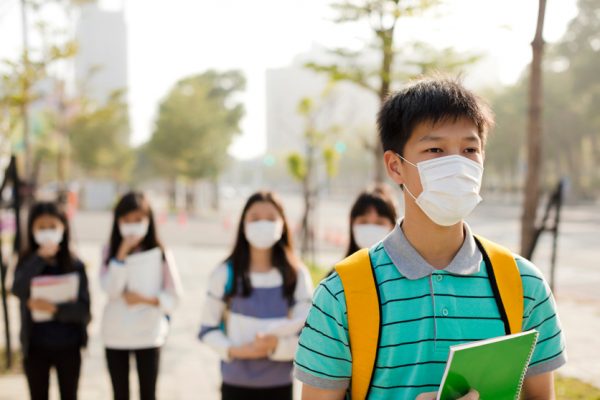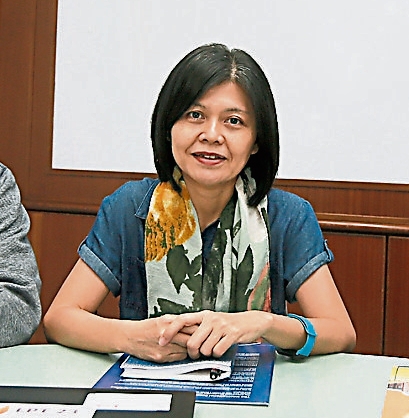
Top priority after school reopening
While Malaysia will see reopening in some of the schools and classes soon, the full resumption of physical lessons at a nationwide level is just a matter of time, for sooner or later students will return to their schools.
As this is not the first time schools reopen, what lessons have we learnt from previous school closures and reopenings, and what are the things that we need to pay attention to this time?
When the educational institutions in the country were closed completely for the first time in 2020, many thought it would not be long before the students could go back to their schools. However, having been shut down several times and started implementing online learning for some time, is there any possibility for the schools to adopt the same teaching approach like what they did in the past after school reopening?

In this regard, Wong Cheng Yoke, Deputy Head of the Education Committee under Dongjiaozong Malaysian Independent Chinese Secondary School (MICSS) Working Committee, expressed candidly that things would never be the same again. As what has been experienced in online learning over the past year are real, the skills and perception that students have gained during this period will not be erased from their memories upon school reopening, instead having an impact on their learning in the days to come. Similarly, the many new skills that the teachers have acquired during the year will be applied in their instruction whenever the school reopens, which in turn leads to a transformation in classroom teaching.
When the way of teaching is being transformed, the so-called school reopening is not just as simple as opening the school gates for students to return to their classrooms. We need to re-evaluate the meaning of education as well as learn from the past experiences of school reopening, so as to get ourselves ready for the next class resumption.
Suggestion 1: Do not race against time to catch up with the teaching schedule as there are more important things to do.
Chinese schools promote holistic education that enables students to attain all-round development covering six areas, namely ethics, intellect, physique, social skills, aesthetics and physical work. During school closure, there is not much of a problem in terms of intellectual development, as teachers are still playing an important role in passing on knowledge to students via online teaching. Wong even heard that some teachers were ahead of schedule since they did not need to spend time on classroom management which allowed them to finish the lessons planned earlier than they expected.
However, it is generally believed that traditional classroom learning cannot be replaced by online lessons. This is because while imparting knowledge to students can be done through virtual teaching, it is difficult for the education in the aspects of ethics, physique and social skills to take place online. An example given by Wong is the classroom helpers who take turns to do classroom chores now absent from online schooling. Nevertheless, do not underestimate the presence of classroom helpers, as it involves the important elements of character education, social skills and civic education whereby the students can learn about responsibility and cooperation, and which could only be carried out in the classroom. Another example is physical education where students learn how to cooperate and compete. All these are hard to achieve online. “So if we look at the school closure in terms of students’ development, it has caused a lot of damage in all areas except for intellect,” she said.
As such, it was in her view that there might be a need for the schools to reshuffle their priorities in the early stage of reopening, focusing more on the development of ethics, physique, social skills, and aesthetics. For example, should art and music classes that equip students with artistic skills, and the class activities be paid more attention, so as to fill in the missing part which cannot be fulfilled online as soon as possible?
Wong is also the executive of Teachers’ Professional Development of Kuen Cheng High School. She said, if we simply divide what students would learn at school into 3 domains, which is attitude, skills and knowledge, the top priority must be given to the attitude after the class resumes.
“In a larger sense, it includes the learning and growth of children’s character and temperament in the areas of mental health, interpersonal skills, and attitudes towards studying and life, which can only be experienced and achieved in an atmosphere that allows people to interact and communicate with one another. So I hope the schools, especially primary and junior high schools, will not rush to make up for learning loss academically during the early stage of school reopening. Instead, the schools can educate students on how to adapt to changes, so that they will feel a sense of warmth, security as well as fun in campus life, which helps them to enhance their understanding of schooling and learning, and to improve their interpersonal skills to get along well with teachers and peers.”



Helping students to look after their mental health rather than their academic performance
Chen Jia Yi, among the first batch of graduates of PISMP-UEC, who is currently teaching at a Chinese primary school in Selangor, also said that the first thing to do after school reopening should not be collecting homework from students. Instead, helping students to reintegrate into campus life and looking after their mental health ought to be prioritized.
When the schools fully resumed face-to-face classes earlier this year, she perceived that students had become disconnected from one another due to a lack of interpersonal communication for a long time. Some students would even interact with their teachers and friends in the way that they used to do at home. Therefore, it was necessary for her to reinforce good manners among students, helping them to adapt to community life when they just returned to school.
“A great deal of learning resources are available on the internet as academic support, but as for something like interpersonal communication or emotion management, students can only achieve by interacting with teacher and friends. So the first thing to do after they come back to school is to pay attention to their mental health and emotional intelligence, especially for those who might have lost their family members to Covid-19. Children are still unclear or half understood of what is going on actually, I think there is a need to communicate and provide emotional support to them first,” she said.
The National Union of Heads of Schools (KKGGBM) president Lim Bee Khim agreed that the top priority after school reopening is helping students to reintegrate themselves into community life. However all kinds of protective measures and restrictions taken to prevent the spread of Covid-19 are unlikely to be lifted in the near future. Therefore, teachers may find it challenging in facilitating interactions among students while having to maintain physical distancing. She suggested that teachers could design learning activities which can be completed independently while allowing students to have interactions with others at the same time.
“We told teachers there is no hurry, and don’t give students lots and lots of exercises. First of all we need to help the young children get back to the in-person learning little by little. Maybe we can start with playing some games, so that they would love to come back to school… Because we are worried that if they find it stressful to return to school, they would rather remain online learning,” Lim said.
Suggestion 2: Greater attention needed among disadvantaged school children
After online instruction has been conducted for more than a year, it is perceived by many teachers that the virtual learning has widened the gap among students, particularly young school children and those from disadvantaged families who have been affected most.
As Chen observed, there was not much difference between virtual learning and in-person learning for students from well-off families as well as those who are self-disciplined or under parental supervision. This is in stark contrast to the plight where students from disadvantaged backgrounds are facing. Some students even have been claimed as the “missing persons” during the online classes. When she reached out and talked to these students in private, they would admit that they could not catch up with the class, and feel worthless with a low self-esteem. As such, she suggested that once the schools reopen, more attention should be paid to students who have fallen behind, so as to help restore their confidence and interest in studying.
Apart from this, Lim added that special needs students also require extra attention when schools reopen. While teachers has been placing particular emphasis on the students’ ability in listening and comprehension during remote learning, there is a need to improve their writing skills once they return to face-to-face class. More importantly, when special needs students start attending school after being locked out for 6 months, the schools must help them to readjust to the new daily routine and learning mode, and offer further assistance to those who have self-care difficulties.
Suggestion 3: Teaching methods must be changed
Over the past year, online learning has made people realize that there are abundant free learning resources available on the internet. As knowledge is within easy reach nowadays, it is the time to redefine the role of teachers.
Lim shared her view that the online instruction has unwittingly driven most of the teachers to master digital skills and some even learned how to use animations and games as their teaching aids. When students get used to the instructional mode like this, or to say, their appetite has been whetted, teachers can no longer have lessons by just repeating what the textbooks say after school reopening, otherwise students will have lost all their interest in learning.
Chen agreed that the classroom learning will never be the same again, which sees a shift from the previously chalk and talk approach to more collaborative and inquiry-based learning. She said, “Kids are smart. Teachers just need to guide and tell them which websites to look up, they will go and search, and acquire these knowledge through the internet. But as for inquiry-based learning, for instance, how to carry out projects, conduct experiments and apply knowledge gained, that can only be done in offline education.”
The term “student-centered learning” that we used to say was nothing more than a catchword, as it has never really taken place in the classroom. Fueled by the pandemic, we are now being pushed towards the education reform, but if we are back to square one after the resumption of physical classes, that would be a retrogression undoubtedly.
Suggestion 4: Always have a backup plan and be prepared for a long-term fight against Covid-19
We are not going to break away from the endless cycle of school closure and reopening as long as the pandemic is not over. Therefore, it is essential for the Ministry of Education and schools to have backup plan and clear guidelines, so that everyone can switch from in-person class to online learning promptly if schools are forced to shut down again.
Chen pointed out that when the schools were closed for the very first time last year, everyone scrambled for the online lessons with a handful of disorganized resources, as if they were doing something beyond their ability. Experiences made everyone better the second and third time around. It does not mean that we can be complacent, as the pandemic seems unlikely to end any time soon. In future, classes may be suspended again in the areas that see an increase in Covid-19 cases.
“I think the cycle of school closure and reopening might become a normality. What if the schools have to shut down again, are we able to continue with studying the following day?” she said, both teachers and students will have to get used to the hybrid learning model, so that everyone can switch quickly between the learning modes as cool as a cucumber if anything happens.
Suggestion 5: Parent-teacher communication is very important
“Many parents did not see the learning problems in their children when classes were held in schools, but now they could finally experience them.”
What Chen said has probably revealed the state of mind of many parents, who are now given a better understanding of what their children learn at school as well as their learning habits and attitudes when accompanying their children during online learning. However, this level of understanding is less than enough, as it will be a different story once the children go back to school. What will education look like in the future still remains unknown, but one thing for sure is that parents will need to communicate more with teachers if they want to help their children to adapt to the post-pandemic learning, and do not expect the responsibility of education to be laid on schools after class resumption.
Is online learning a new normal which is of no return?
Last year, when the pandemic has raged around the world, Andreas Schleicher, Special Advisor on Education Policy to the Secretary-General at the Organisation for Economic Co-operation and Development (OECD) said, massive school closures can be a destructive innovation to the education sector, as we won’t return to the status quo when things return to “normal”.
This year, students across the country found the time they have spent in online learning was longer than in-person learning. Is there any possibility that face-to-face classes would be replaced by virtual learning in future?
In this regard, Wong held that although we can gain plentiful learning resources through the internet, it does not mean education is received, as one’s abilities such as characters and interpersonal skills are always nurtured in social interactions after all. In other words, face-to-face learning will not be replaced by virtual classes, especially when it comes to the developments of ethics, physique, and social skills.
Nevertheless, the online learning experiences gained over the past year will definitely have an impact on the classroom instruction in the future, most importantly, what lessons have we learnt from it.
“Today if we expect returning to school means nothing but to open the textbook and resume the chalk and talk teaching, I don’t think we have learnt something from the class suspensions this time,” to put it bluntly, “It is tantamount to letting a good crisis go to waste”, she said.
